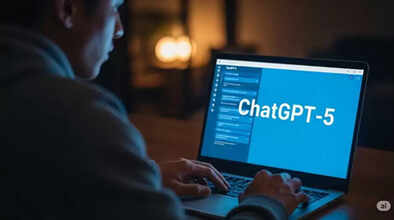OpenAI: Be careful while talking to ChatGPT, if you do something wrong then AI will call the police, OpenAI itself revealed..

OpenAI has made a big disclosure in its blog post this week. The company has admitted that user chats done on ChatGPT are monitored, and if the conversation reflects violence or a plan to harm someone, then these chats are sent to a special review team. According to the company, if this team believes that the threat is serious and immediate, then in such a situation, this information can be shared with law enforcement agencies.
This disclosure raises many questions, because till now, people believed that conversations with AI are private and safe. Critics say that if humans interpret the intent and tone of a conversation, then the claim of ChatGPT being completely autonomous weakens.
OpenAI tracks users' location.
Another big concern is how OpenAI identifies the location of users so that emergency services can be informed. Experts say that it is also possible to misuse it. For example, in cases of “swatting,” someone can use an innocent person’s identity to send fake violent messages, which can lead to police raiding that person’s home.
This move is inconsistent with recent statements by OpenAI CEO Sam Altman. He said that using ChatGPT is as private as talking to a lawyer, doctor, or therapist. But if humans can read the conversation and send it to the police, then this comparison does not hold.
Is the test being conducted on users?
Critics in the technology world see this as evidence that AI companies are launching increasingly powerful systems, but are unable to fully understand their consequences. In such a situation, users inadvertently become “test subjects,” and companies try to fill the loopholes later.
The lesson for ordinary users is clear: ChatGPT definitely gives the feeling of private conversation, but it is not completely private. Your chats may be reviewed and, in serious cases, even passed on to the police.
Disclaimer: This content has been sourced and edited from Amar Ujala. While we have made modifications for clarity and presentation, the original content belongs to its respective authors and website. We do not claim ownership of the content.

